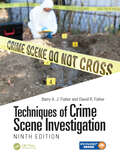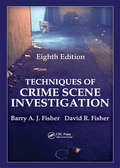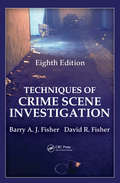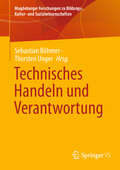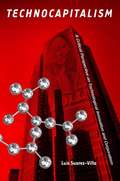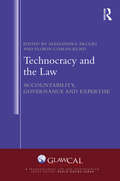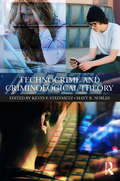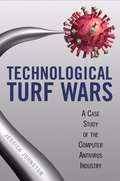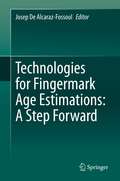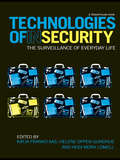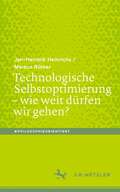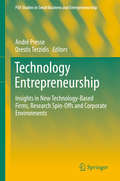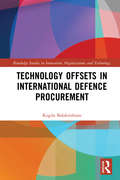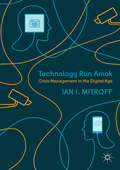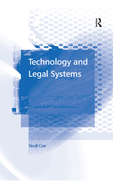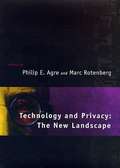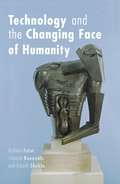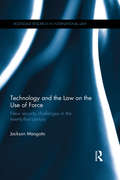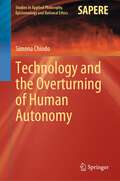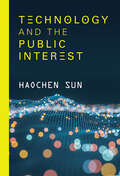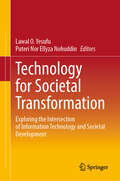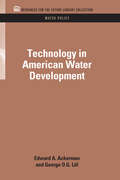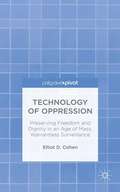- Table View
- List View
Techniques of Crime Scene Investigation
by David R. Fisher Barry A. Fisher"Techniques of Crime Scene Investigation is a staple for any forensic science library and is routinely referenced by professional organizations as a study guide for certifications. It is professionally written and provides updated theoretical and practical applications using real casework. This text is a must-have for any CSI Unit or course teaching Crime Scene Investigation." – Kevin Parmelee, PhD, Detective (ret.), Somerset County, NJ Prosecutor’s Office Since the first English-language edition of Techniques of Crime Scene Investigation was published in 1964, the book has continued to be a seminal work in the field of forensic science, serving as a foundational textbook and reference title for professionals. This Ninth Edition includes several new chapters and has been fully updated and organized to present the effective use of science and technology in support of justice. New coverage to this edition addresses the debunking of a few forensic science disciplines, long thought to have been based on sound science. The book provides students, crime scene investigators, forensic scientists, and attorneys the proper ways to examine crime scenes and collect a wide variety of physical evidence that may be encountered. While it is not possible to cover every imaginable situation, this book is a comprehensive guide that details and promotes best practices and recommendations. In today’s challenging environment, it is essential that law enforcement personnel thoroughly understand and meticulously comply with the forensic evidence procedures that apply to their function in the investigation process. Criminal investigations remain as complex as ever and require professionals from many disciplines to work cooperatively toward the fair and impartial delivery of justice. Practitioners and students alike need to be aware of the increased scrutiny that they will face in the judicial system. Judges are taking a more involved role than ever before as far as the evidence and testimony that they allow into their courtrooms. No longer will substandard forensic science or crime scene investigation be acceptable. Key features: Newly reorganized contents—including 4 brand new chapters—reflects a more logical flow of crime scene processes and procedures Provides an overview of the crime scene investigation process and procedures, from the first officer on the scene through the adjudication of the case Includes several new cases, photos, and updates in technological advances in both digital evidence and DNA in particular Science and technology applied to CSI solves crimes and saves lives. Investigators, prosecutors, and defense attorneys must be able to use forensic tools and resources to their fullest potential and Techniques of Crime Scene Investigation serves as an invaluable resource to further this cause.
Techniques of Crime Scene Investigation (Eighth Edition)
by Barry A. J. Fisher David R. FisherThe application of science and technology plays a critical role in the investigation and adjudication of crimes in our criminal justice system. But before science can be brought to bear on evidence, it must be recognized and collected in an appropriate manner at crime scenes. Written by authors with over 50 years of combined experience in forensic science, Techniques of Crime Scene Investigation examines the concepts, field-tested techniques, and procedures of crime scene investigation. Detectives, crime scene technicians, and forensic scientists can rely on this updated version of the "forensics bible" to effectively apply science and technology to the tasks of solving crimes. <p><p> What’s New in the Eighth Edition: <p> The latest in forensic DNA testing and collection, including low copy number DNA<br> A new chapter on digital evidence<br> New case studies with color photographs<br> End-of-chapter study questions<br> Practical tips and tricks of the trade in crime scene processing
Techniques of Crime Scene Investigation (Forensic and Police Science)
by Barry A. J. Fisher David R. FisherThe application of science and technology plays a critical role in the investigation and adjudication of crimes in our criminal justice system. But before science can be brought to bear on evidence, it must be recognized and collected in an appropriate manner at crime scenes. Written by authors with over 50 years of combined experience in forensic science, Techniques of Crime Scene Investigation examines the concepts, field-tested techniques, and procedures of crime scene investigation. Detectives, crime scene technicians, and forensic scientists can rely on this updated version of the "forensics bible" to effectively apply science and technology to the tasks of solving crimes.
Technisches Handeln und Verantwortung (Magdeburger Forschungen zu Bildungs-, Kultur- und Sozialwissenschaften)
by Thorsten Unger Sebastian BöhmerWir sind daran gewöhnt, dass technische Bauten, Apparate und Anlagen funktionieren. Erst wenn Probleme auftreten, erfahren sie Aufmerksamkeit – und es wird die Frage nach der Verantwortung gestellt, oft an die beteiligten Ingenieure. Besonders intensiv wird diese Frage bei heiklen Hochtechnologien wie Atom- und Gentechnik oder sensiblen Infrastrukturen wie Brücken-, Kanal- und Tunnelbauten diskutiert. Im Katastrophenfall vermischen sich dann häufig juristische, sozio- und psychologische, wirtschaftliche, ethische, religiöse und ingenieurwissenschaftliche Aspekte, was sich auch für die Darstellung dieser Problematik in der Kultur seit dem Ausgang des 19. Jahrhunderts beobachten lässt. Der Band versammelt Beiträge von Expertinnen und Experten aus den Fachgebieten Maschinenbau, Technikphilosophie, Technikgeschichte, Moraltheologie, Berufs- und Betriebspädagogik, Literaturwissenschaft und Linguistik. Sie stellen theoretische wie praktische Aspekte von Verantwortung in der Ingenieurstätigkeit sowie entsprechende Diskurse in Politik, Kultur und Gesellschaft vor. Die Beiträge gehen zurück auf eine Ringvorlesung für Studierende aller Fakultäten im Sommersemester 2023 an der Otto-von-Guericke-Universität Magdeburg.
Technocapitalism: A Critical Perspective on Technological Innovation and Corporatism
by Luis Suarez-VillaA new version of capitalism, grounded in technology and science, is spawning new forms of corporate power and organization that will have major implications for the twenty-first century. Technological creativity is thereby turned into a commodity in new corporate regimes that are primarily oriented toward research and intellectual appropriation. This phenomenon is likely to have major social, economic and political consequences, as the new corporatism becomes ever more intrusive and rapacious through its control over technology and innovation. In his provocative bookTechnocapitalism, Luis Suarez-Villa addresses this phenomenon from the perspective of radical political economy and social criticism. Grounded in the premise that relations of power influence how human creativity and technology are exploited by the new corporatism, the author argues that new forms of democratic participation and resistance are needed, if the social pathologies created by this new version of capitalism are to be checked. Considering the new sectors affected by technocapitalism, such as biotechnology, nanotechnology, bioinformatics, and genomics, Suarez-Villa deciphers the common threads of power and organization that drive their corporatization. These new sectors, and the corporate apparatus set up to extract profit and power through them, are imposing standards, creating business models, molding social governance, and influencing social relations at all levels. The new reality they create is likely to affect most every aspect of human existence, including work, health, life, and nature itself.
Technocracy and the Law: Accountability, Governance and Expertise (Transnational Law and Governance)
by Florin Coman-Kund Alessandra ArcuriTechnocratic law and governance is under fire. Not only populist movements have challenged experts. NGOs, public intellectuals and some academics have also criticized the too close relation between experts and power. While the amount of power gained by experts may be contested, it is unlikely and arguably undesirable that experts will cease to play an influential role in contemporary regulatory regimes. This book focuses on whether and how experts involved in policymaking can and should be held accountable. The book, divided into four parts, combines theoretical analysis with a wide variety of case studies expounding the challenges of holding experts accountable in a multilevel setting. Part I offers new perspectives on accountability of experts, including a critical comparison between accountability and a virtue-ethical framework for experts, a reconceptualization of accountability through the rule of law prism and a discussion of different ways to operationalize expert accountability. Parts I–IV, organized around in-depth case studies, shed light on the accountability of experts in three high-profile areas for technocratic governance in a European and global context: economic and financial governance, environmental/health and safety governance, and the governance of digitization and data protection. By offering fresh insights into the manifold aspects of technocratic decisionmaking and suggesting new avenues for rethinking expert accountability within multilevel governance, this book will be of great value not only to students and scholars in international and EU law, political science, public administration, science and technology studies but also to professionals working within EU institutions and international organizations.
Technocrime and Criminological Theory
by Kevin F. Steinmetz Matt R. NoblesCybercrime, computer crime, Internet crime, and technosecurity have been of increasing concern to citizens, corporations, and governments since their emergence in the 1980s. Addressing both the conventional and radical theories underlying this emerging criminological trend, including feminist theory, social learning theory, and postmodernism, this text paves the way for those who seek to tackle the most pertinent areas in technocrime. Technocrime and Criminological Theory challenges readers to confront the conflicts, gaps, and questions faced by both scholars and practitioners in the field. This book serves as an ideal primer for scholars beginning to study technocrime or as a companion for graduate level courses in technocrime or deviance studies.
Technological Turf Wars: A Case Study of the Computer Antivirus Industry
by Jessica JohnstonInTechnological Turf Wars, Jessica Johnston analyzes the tensions and political dilemmas that coexist in the interrelationship among science, technology and society. Illustrating how computer security is as concerned with social relationships as it is with technology, Johnston provides an illuminating ethnography that considers corporate culture and the workplace environment of the antivirus industry. Using a qualitative, interdisciplinary approach, which combines organizational and security studies with critical and social analysis of science and technology, Johnston questions the motivations, contradictions and negotiations of antivirus professionals. She examines the tensions between the service ethics and profit motives-does the industry release viruses to generate demand for antivirus software?-and considers the dynamics within companies by looking at facets such as gender bias and power politics. Technological Turf Warsis an informed, enlightened and entertaining view of how the production of computer security technology is fraught with social issues.
Technological Turf Wars: A Case Study of the Computer Antivirus Industry
by Jessica R. JohnstonIllustrating how computer security is as concerned with social relationships as it is with technology, Johnston provides an illuminating ethnography that considers corporate culture and the workplace environment of the antivirus industry. Using a qualitative, interdisciplinary approach, which combines organizational and security studies with critical and social analysis of science and technology, Johnston questions the motivations, contradictions and negotiations of antivirus professionals. She examines the tensions between the service ethics and profit motives--does the industry release viruses to generate demand for antivirus software?--and considers the dynamics within companies by looking at facets such as gender bias and power politics. Technological Turf Wars is an informed, enlightened and entertaining view of how the production of computer security technology is fraught with social issues.
Technologie, sozialer Wandel und menschliches Verhalten: Einfluss für Wirkung
by Cornelia C. WaltherDieses Buch befasst sich mit dem organischen Kontinuum, das Individuen, Gemeinschaften und die Gesellschaft miteinander verbindet. Ein Überblick über Aspirationelle Algorithmen (AA) und Wertvolle Werkzeuge (WW) illustriert den möglichen Nutzen von Technologie, um einen bewussten Übergang einzuleiten, vom KI-Kult zur Kultivierung von Höherer Humanität (HH). Die menschliche Einstellung, die hinter dem Design und der Nutzung von Technologie steht, bestimmt die Ergebnisse der Technologie. Wenn das angestrebte Ergebnis das Gemeinwohl ist, dann muss das vorausgehende menschliche Streben auf dieses Ziel ausgerichtet sein. Nur eine Technologie, die mit dem Ziel konzipiert wurde, eine Gesellschaft zu schaffen die den Einzelnen zur Entfaltung seines Potenzials befähigt, wirkt sich positiv auf das Gemeinwohl aus. Angesichts des ständigen Wechselspiels zwischen den vier Dimensionen der menschlichen Existenz - Seele, Herz, Verstand, Körper -, die sich in Form von Bestrebungen, Emotionen, Gedanken und Empfindungen ausdrücken, wird deutlich, wie Technologie dazu dienen kann, den Einzelnen systematisch von der Inspiration zum Wunsch, von der Information zur Zündung einer spürbaren Veränderung zu führen. Dieses Buch erklärt den Übergang entlang einer multidimensionalen Einfluss Skala. Zwei sich gegenseitig beeinflussende Dynamiken werden analysiert: erstens der Einfluss von Werten und Bestrebungen auf die Wirkung von Technologie und zweitens der Einfluss von Technologie auf die Einstellung und das Handeln der Nutzer. Beide Ansätze zielen darauf ab, zu bewerten wie Hard- und Software einem Maximum an Menschen zu einem sinnvollen, glücklichen Leben verhelfen können.
Technologies for Fingermark Age Estimations: A Step Forward
by Josep De Alcaraz-FossoulThis book discusses new applications of technologies that have been or could be successfully employed to estimate the age of fingermarks. Determining the specific time a fingermark is deposited could become a powerful new development in forensic science and a useful application to law enforcement. This book aims to shed some light on this important and still controversial area of scientific research. The expert chapters review recent discoveries and current developments with a practical bent, focusing on prospective uses in real-world crime scenes. They take a multidisciplinary approach, featuring contributors with diverse specialties including Chemistry, Imaging Technologies, Forensic Science, Biology and Microbiology. The balanced presentation incorporates critiques on fingermark aging studies, explores the reliability of fingermarks as evidence, and discusses how the estimation of “age” can improve robustness of crime evidence. Each chapter describes a unique aspect of fingermark aging observed from a different analytical perspective: 2D imaging; 3D imaging; chemical analysis; chemical imaging; microbiome analysis; electrochemical analysis; and DNA analysis, as well as the role and application of statistics. Illustrations and graphs aid the reader in understanding the concepts being explained. Not just a compilation of techniques and methods, this book’s emphasis on practical applications and its easy-to-read style will appeal to a broad audience of scientists and criminal justice professionals alike. It will be of great interest to law enforcement, academia, and the criminal justice community; including forensic scientists, investigators, lawyers, students, and researchers. It aims to help facilitate debates in the broader community about the feasibility, convenience, and relevance of estimating the age of evidence.
Technologies of InSecurity: The Surveillance of Everyday Life
by Katja Aas Helene Gundhus Heidi LomellTechnologies of Insecurity examines how general social and political concerns about terrorism, crime, migration and globalization are translated into concrete practices of securitisation of everyday life. Who are we afraid of in a globalizing world? How are issues of safety and security constructed and addressed by various local actors and embodied in a variety of surveillance systems? Examining how various forms of contemporary insecurity are translated into, and reduced to, issues of surveillance and social control, this book explores a variety of practical and cultural aspects of technological control, as well as the discourses about safety and security surrounding them. (In)security is a politically and socially constructed phenomenon, with a variety of meanings and modalities. And, exploring the inherent duality and dialectics between our striving for security and the simultaneous production of insecurity, Technologies of Insecurity considers how mundane objects and activities are becoming bearers of risks which need to be neutralised. As ordinary arenas - such as the workplace, the city centre, the football stadium, the airport, and the internet - are imbued with various notions of risk and danger and subject to changing public attitudes and sensibilities, the critical deconstruction of the nexus between everyday surveillance and (in)security pursued here provides important new insights about how broader political issues are translated into concrete and local practices of social control and exclusion.
Technologische Selbstoptimierung – wie weit dürfen wir gehen? (#philosophieorientiert)
by Jan-Hendrik Heinrichs Markus RütherTechnologische Selbstoptimierung ist gegenwärtig in aller Munde. Sie umfasst die Erforschung neuer Möglichkeiten im Hinblick auf Schönheitsoperationen, funktionale Implantologie, Gehirndoping oder die Verlängerung der Lebensspanne. Gegenüber vielen dieser technischen Mittel, die oft nicht legal verfügbar sind, bestehen erhebliche gesellschaftliche Vorbehalte. Jan-Hendrik Heinrichs und Markus Rüther plädieren bei ihrer ethischen Einschätzung für eine Differenzierung der Perspektive: Die Vorbehalte sind nämlich ihrer Meinung nach nicht geeignet, gesellschaftliche Ächtung oder gar verbindliche Verbote für alle zu begründen. Vielmehr habe die Freiheit zur Selbstgestaltung Vorrang, was jedoch nicht heißt, dass es für manche Bereiche nicht auch klare Regeln geben muss. Weil Selbstgestaltung aber nur frei sein kann, wenn sie informiert ist, argumentieren die Autoren für Regelungen, die von weitgehenden Informationspflichten statt von Verboten bestimmt sind. Aus einer individuellen Sicht heraus lassen sich zudem eine Reihe von moralischen Empfehlungen formulieren, die zwar nicht eingefordert werden können, aber einen ethischen Kompass bilden, um sich im Dickicht der ethischen Debatte an guten Gründen zu orientieren.
Technology Entrepreneurship: Insights In New Technology-based Firms, Research Spin-offs And Corporate Environments (Fgf Studies In Small Business And Entrepreneurship Ser.)
by André Presse Orestis TerzidisThis collection of expert articles explores the development drivers of new technology-based firms and projects. It provides perspectives for an in-depth understanding of how technological inventions lead to the creation of new and sustainable companies or business units. The authors address methods and concepts that help technology-based start-ups and entrepreneurial projects successfully develop innovative products and services.
Technology Offsets in International Defence Procurement (Routledge Studies in Innovation, Organizations and Technology)
by Kogila BalakrishnanTechnology offsets, a nonconventional international trade-financing tool, is used by governments (buyers) to obtain industrial and technological benefits from companies (sellers) as part of international procurement. Offsets deals involve billions of dollars and this practice exists in around 80 countries around the world. Though offsets is a popular practice in defence, it is increasingly gaining popularity in civil sectors. Offsets is often tainted by controversy and receives bad press. What then makes offsets popular? Governments claim that offsets delivers technology and knowledge transfer, skills in high technology sectors and employment, and offsets expands export opportunities through participation in OEM supply chains. For companies, offsets is mainly employed as a tool to obtain a competitive edge and win sales in international business. In the past, there have been mixed results of case studies on the impact of offsets successes and failures. Considering the mismanagement of globalisation, unfair trade agreements and current political and economic discontent, there is a stronger need for governments and companies to use vehicles such as offsets to create a relationship of trust and commitment for sustainable development. This book fills the gap in offsets and focuses on how to manage offsets more effectively by addressing issues of strategy, policy and implementation, technology management, governance and risk. Technology Offsets in International Defence Procurement is designed for those studying international procurement, international trade, international business, technology management, defence policy and industrial policy. This book will also be of interest to practitioners and policy makers in both government and industry.
Technology Run Amok: Crisis Management In The Digital Age
by Ian I. MitroffThe recent data controversy with Facebook highlights that the tech industry as a whole was utterly unprepared for the backlash it faced as a result of its business model of selling user data to third parties. Despite the predominant role that technology plays in all of our lives, the controversy also revealed that many tech companies are reactive, rather than proactive, in addressing crises. This book examines society's failure to manage technology and its resulting negative consequences. Mitroff argues that the "technological mindset" is responsible for society's unbridled obsession with technology and unless confronted, will cause one tech crisis after another. This trans-disciplinary text, edgy in its approach, will appeal to academics, students, and practitioners through its discussion of the modern technological crisis.
Technology and Legal Systems
by Noel CoxThe advent of the knowledge economy and society has made it increasingly necessary for law reformers and policy makers to take account of the effects of technology upon the law and upon legal and political processes. This book explores aspects of technology's relationship with law and government, and in particular the effects changing technology has had on constitutional structures and upon business. Part I examines the legal normative influence of constitutional structures and political theories. It focuses on the interrelationship between laws and legal procedure with technology and the effect technology can have on the legal environment. Part II discusses the relationship between government and technology both at the national and international level. The author argues that technology must be contextualized within a constitution and draws on historical and contemporary examples to illustrate how technology has both shaped civilizations and been the product of its political and constitutional environment.
Technology and Privacy: The New Landscape
by Philip E. Agre Marc RotenbergPrivacy is the capacity to negotiate social relationships by controlling access to personal information. As laws, policies, and technological design increasingly structure people's relationships with social institutions, individual privacy faces new threats and new opportunities. Over the last several years, the realm of technology and privacy has been transformed, creating a landscape that is both dangerous and encouraging. Significant changes include large increases in communications bandwidths; the widespread adoption of computer networking and public-key cryptography; mathematical innovations that promise a vast family of protocols for protecting identity in complex transactions; new digital media that support a wide range of social relationships; a new generation of technologically sophisticated privacy activists; a massive body of practical experience in the development and application of data-protection laws; and the rapid globalization of manufacturing, culture, and policy making. The essays in this book provide a new conceptual framework for the analysis and debate of privacy policy and for the design and development of information systems. The authors are international experts in the technical, economic, and political aspects of privacy; the book's strength is its synthesis of the three. The book provides equally strong analyses of privacy issues in the United States, Canada, and Europe. Contributors: Philip E. Agre, Victoria Bellotti, Colin J. Bennett, Herbert Burkert, Simon G. Davies, David H. Flaherty, Robert Gellman, Viktor Mayer-Schouml;nberger, David J. Phillips, Rohan Samarajiva.
Technology and the Changing Face of Humanity (Philosophica)
by Feist, Richard; Beauvais, Chantal; Shukla, RajeshA philosophical examination of technology’s growing influence. This pioneering collection explores the relationship between technology and free will. Rejecting the notion of technology as a neutral addition to our lives, the contributors examine the type and degree of our society’s technological dependence. Technology is revealed as something from which we have, and will continue to have, difficulty separating ourselves, both as individuals and as a society. Without articulating a purely deterministic perspective, this collection illuminates the powerful influence technology has on our world and our perception of it.
Technology and the Law on the Use of Force: New Security Challenges in the Twenty-First Century (Routledge Research in International Law)
by Jackson MaogotoAs governmental and non-governmental operations become progressively supported by vast automated systems and electronic data flows, attacks of government information infrastructure, operations and processes pose a serious threat to economic and military interests. In 2007 Estonia suffered a month long cyber assault to its digital infrastructure, described in cyberspace as ‘Web War I’. In 2010, a worm—Stuxnet—was identified as supervisory control and data acquisition systems at Iran’s uranium enrichment plant, presumably in an attempt to set back Iran’s nuclear programme. The dependence upon telecommunications and information infrastructures puts at risk Critical National Infrastructure, and is now at the core of national security interests. This book takes a detailed look at these new theatres of war and considers their relation to international law on the use of force. Except in cases of self-defence or with the authorisation of a Security Council Resolution, the use of force is prohibited under the UN charter and customary international law. However, the law of jus ad bellum was developed in a pre-digital era where current technological capabilities could not be conceived. Jackson Maogoto asks whether the law on the use of force is able to deal with legal disputes likely to arise from modern warfare. Key queries include how one defines an armed attack in an age of anti-satellite weaponry, whether the destruction of a State’s vital digital eco-system or the "blinding" of military communication satellites constitutes a threat, and how one delimits the threshold that would enliven the right of self-defence or retaliatory action. The book argues that while technology has leapt ahead, the legal framework has failed to adapt, rendering States unable to legally defend themselves effectively. The book will be of great interest and use to researchers and students of international law, the law of armed conflict, Information Technology and the law, and counter-terrorism.
Technology and the Overturning of Human Autonomy (Studies in Applied Philosophy, Epistemology and Rational Ethics #66)
by Simona ChiodoThis book offers an extensive historical, philosophical and ethical discussion on the role of autonomous technologies, and their influence on human identity. By connecting those different perspectives, and analysing some practical case studies, it guides readers to dissect the relationship between machine and human autonomy, and machine and human identity. It analyses how the relationship between human and technology has been evolving in the last few centuries. Last, it aims at proposing an explanation on the reason/s why humans have been keen on developing their own autonomy’s perfect avatar.
Technology and the Public Interest
by Haochen SunIn this groundbreaking work, Haochen Sun analyzes the ethical crisis unfolding at the intersection of technology and the public interest. He examines technology companies' growing power and their increasing disregard for the public good. To tackle this asymmetry of power and responsibility, he argues that we must reexamine the nature and scope of the right to technology and dynamically protect it as a human right under international law, a collective right under domestic civil rights law, and potentially a fundamental right under domestic constitutional law. He also develops the concept of fundamental corporate responsibility requiring technology companies to compensate users for their contributions, assume an active role responsibility in upholding the public interest, and counter injustices caused by technological developments.
Technology for Societal Transformation: Exploring the Intersection of Information Technology and Societal Development
by Lawal O. Yesufu Puteri Nor Ellyza NohuddinThis book extensively investigates the dynamic relationship between information technology and societal transformation. The book explores a range of applied IT uses, ranging from educational technology to the complex applications of cybersecurity, the promise of blockchain technologies, e-commerce and rural development, and social media and its applications in political activism. Investigating key topics in social development and the role information technology plays in elevating our lives, the book navigates this ever-changing landscape of technological innovation to determine how it can be a source for good and improve our lives by driving positive social change. While focusing on the practical application of technology to real-world situations, examples, and cases, the book primarily focuses on educational development, entrepreneurship, sociopolitical transformation, and the security and defence of society. Collectively, these explorations serve to better highlight how technology can be harnessed in the creation of a more inclusive and equitable society. Hence, the book will be a useful read for students, academics, policymakers, business and social investors.
Technology in American Water Development (RFF Water Policy Set)
by Edward A. Ackerman George O.G. LoffFirst Published in 2011. Routledge is an imprint of Taylor & Francis, an informa company.
Technology of Oppression: Preserving Freedom and Dignity in an Age of Mass, Warrantless Surveillance
by Elliot D. CohenIn the wake of the National Security Agency expose of 2013, scholars and citizens alike have been turning a critical eye toward United States surveillance policies. Technology of Oppression contributes to this ongoing discussion with a systematic analysis of mass surveillance in America and allied countries, detailing how lax intelligence laws have allowed these technologies to undermine common civil liberties. Toward the practical end of reigning in existing surveillance technologies, Cohen offers a concise proposal listing the policy changes and software developments necessary to establish an internet-based, global forum for transparently affecting legal and technological change. "
